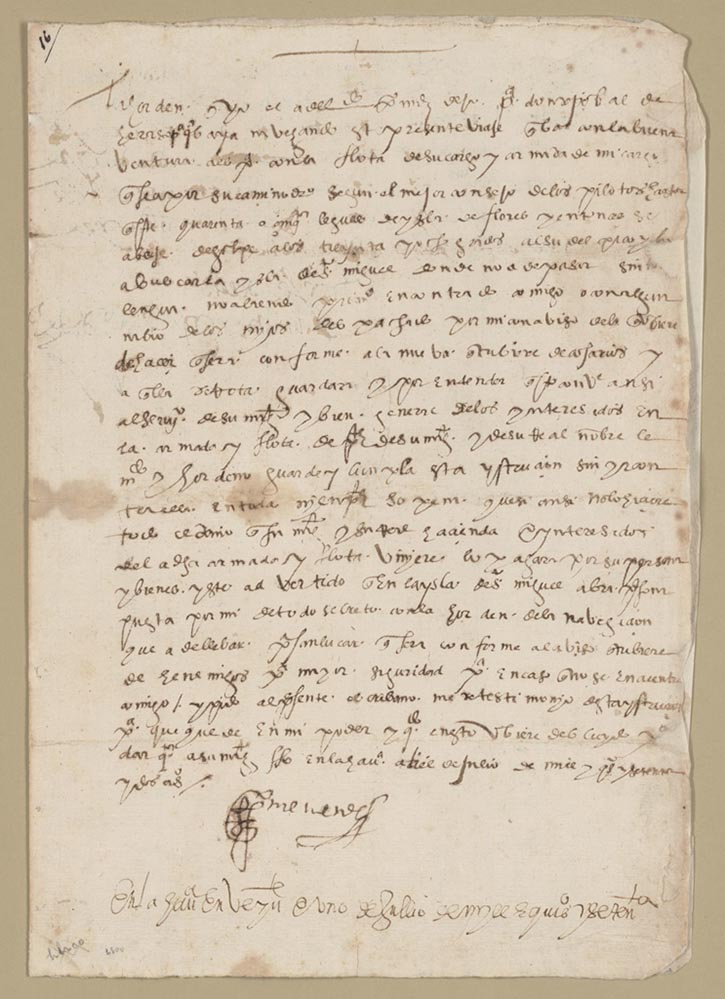
Secret sailing orders written by the governor of Florida in 1572.
In their research, history scholars use both primary sources and secondary sources. Primary sources are actual records that have survived from the past, such as letters, photographs, diaries, etc. Secondary sources are accounts of the past created by people writing about events some time after they happened.
For example, a history book is a secondary source. Someone wrote the book long after historical events took place. The book may, however, include some primary sources, such as direct quotes from people living in the past or excerpts from historical documents.
People living in the past left many clues about their lives. These clues include personal papers, government documents, letters, oral accounts, diaries, maps, photographs, reports, artifacts, coins, stamps, and many other things. Historians call all of these clues "the historical record." When historians looks at primary sources, they try to determine the quality of the sources and how close they are to actual events. Historians ask the following questions:
| Who created the source and why? |
| Was it created through a spur-of-the-moment act, a routine transaction, or a deliberate process? |
| Did the recorder have firsthand knowledge of the event or did the recorder report what others saw and heard? |
| When evaluating these clues, or primary sources, historians may use the following questions to help determine the quality of the source. These questions should help the historian determine the closeness of the source to the actual event and the presence of any bias in the source. |
| Was the recorder a neutral party, or did the creator [of the document] have opinions or interests that might have influenced what was recorded? |
| Did the recorder produce the source for personal use, for one or more individuals, or for a large audience? |
| Was the source meant to be public or private? |
| Did the recorder wish to inform or persuade others? (Check the words in the source. The words may tell you whether the recorder was trying to be objective or persuasive.) |
| Did the recorder have reasons to be honest or dishonest? |
| Was the information recorded during the event, immediately after the event, or after some lapse of time? |
| How large a lapse of time? |
